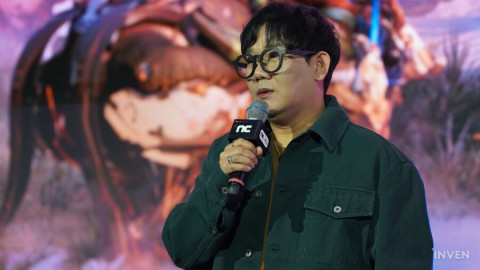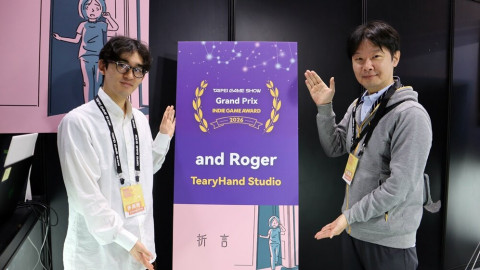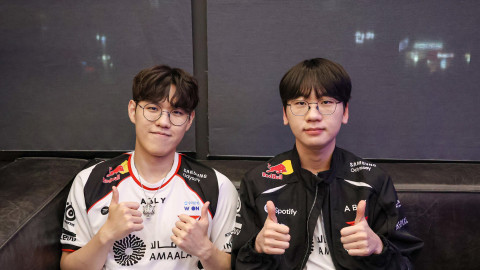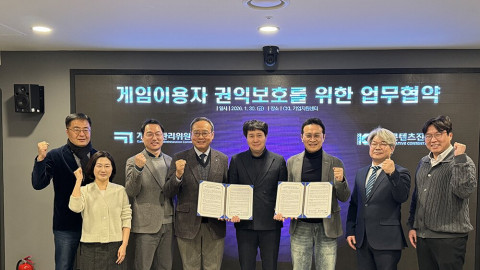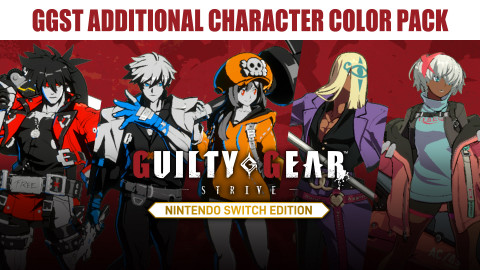
Running an esports tournament is hard. Running a Dota 2 tournament? Well, that’s even harder.
From scheduling conflicts to flaky teams to whopping overhead costs, there are pitfalls aplenty when it comes to making an event run smoothly. Sometimes, given the game’s ever-finicky community, those pitfalls are of the public relations variety. And other times? They come from the very top.
That was the case on Friday.
The 2017-2018 Dota 2 season officially began earlier this week with season 3 of the StarLadder i-League Invitational. For the most part, it was a standard helping of high-level Dota 2. But the biggest story entering the weekend wasn’t the resurgence of compLexity Gaming or Newbee’s disappointing performance in the group stage.
No, the biggest story on Friday evening was the unlikely beef between StarLadder and a number of Dota 2 streamers.
During Friday’s SLi3 group stage matches, a number of streamers that were covering the event were hit with infractions from Twitch. Some, like Henrik "AdmiralBulldog" Ahnberg, were given warnings to stop their broadcasts of the tournament while on-air. Others, like Brian "BananaSlamJamma" Canavan, were given short bans (in his case, 24 hours) without any opportunity to avoid the hit.

StarLadder, as of this writing, has not given any kind of official statement but Valve has released an official blog post on the topic, with the company’s official stance on the issue being summarized as follows:
“...We believe that anyone should be able to broadcast a match from DotaTV for their audience. However, we don’t think they should do so in a commercial manner or in a way that directly competes with the tournament organizer’s stream. This means no advertising/branding overlays, and no sponsorships. It also means not using any of the official broadcast’s content such as caster audio, camerawork, overlays, interstitial content, and so on.”
Valve’s quickness in reaching this decision raises a bit of an eyebrow, given how it impacts a huge number of casters at both the amateur and professional level. Just as important, however, is how it continues to make Dota 2 a difficult venture for tournament organizers.
It wasn’t always this way, of course. A few short years ago, there were a variety of options for making money with a Dota 2 tournament.
Digital tickets allowed organizers to charge an entry fee to watch their shows in the game client. Skins could be sold to people that weren’t even interested in competitive Dota. Compendiums offered the potential for multi-million dollar returns.

One by one, however, those opportunities were taken away and today, tournament organizers have just one avenue to staying in the black; leverage viewership to sponsors. And unfortunately, Valve’s stance is now taking even that away from them.
Tournament organizers are, in reality, media companies; businesses that spend money to produce content, then profit off their ability to disseminate it. More viewers means more value to sponsors which, in turn, contributes to their bottom line. But with Dota 2’s pool of financiers becoming shallower and viewership in a state of decline, it’s a safe assumption that margins are narrowing.
That makes Valve encouraging streamers to skim viewers off the top of official broadcasts an unnecessary burden for tournament organizers. It becomes even worse when one realizes that, in AdmiralBulldog’s case, Valve functionally gave its stamp of approval to a rival media company (in this case the esports team which pays him, Alliance) profiting off a broadcast of StarLadder’s content despite not investing a dime into the event itself.
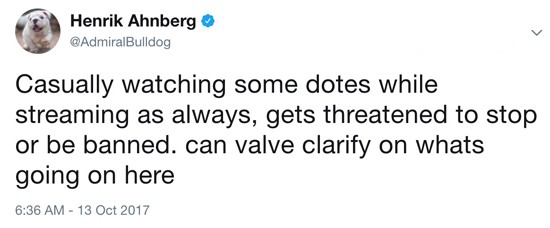
While Valve tried to cover some bases in its blog post, saying that third-party tournament streams shouldn’t directly compete with organizers, or be done in a commercial manner, their guidelines are inherently unenforceable.
With a limited number of people watching Dota 2 at any given time, all streamers are competing for viewers by default. Streaming for pay is a fundamentally commercial act and, in the case of Alliance (which is sponsored by Monster Energy), directly undermines StarLadder (which is sponsored by rival energy drink Red Bull) as an advertising platform. Calling for the removal of advertising overlays does little stop other streamers from using others’ content as platforms for their own business interests.
Valve’s resolution likely leaves all parties dissatisfied but comes at an unfortunate time for the competitive Dota 2 scene.
Back in July, Valve unveiled a new tournament format in the “Dota 2 Pro Circuit”, a system where teams acquire points over a season in order to qualify for The International, similar to the Capcom Pro Tour. While it’s an approach that keeps Valve in charge, it still requires a number of outside tournament organizers to function smoothly.

With this new circuit still in its infancy, Valve should be doing everything in its power to accommodate the companies that keep Dota 2 ticking 11 months out of the year. It has done very little to do so, however, as none of the previous monetization options have returned and there have been no reports of Valve helping to bankroll Dota Pro Circuit tournaments. While Valve contributes to the prize pools of approved events, the actual organizers don’t seem to receive anything more than an implied viewership boost based on the TI implications.
Undercutting the one boon to arranging a Pro Circuit event hurts the organizers tasked with keeping pro players active and fan appetites sated today. And as for tomorrow? It’s hard to imagine any esports heavyweights like ELEAGUE investing in an actual Dota 2 event when Valve is now on-record saying that anyone can broadcast their content without permission, authorization or remuneration.
Ultimately, this story probably isn’t over. The lines have been drawn and the organizers have been successful in taking down streams to this point. Unless Twitch stops taking action or Valve cuts off its nose by somehow punishing StarLadder and other organizers that do the same, there is little reason for them to stop.
That’s a shame in some ways. The pure, grassroots days of Dota 2 (and esports in general) have been fading away before our eyes and there’s no better example of that than fan favorite casters being supplanted by international tournament organizers.
But with outfits like StarLadder, ESL and Perfect World given a bigger role than ever before, it’s tough to ask them to drive the game forward when dozens of people are siphoning off their gas.
(Photo Credit: Daniel Najarian, @missing_data)
Disclaimer : The following article was written freely based on the author's opinion, and it may not necessarily represent Inven Global's editorial stance.
Sort by:
Comments :0


